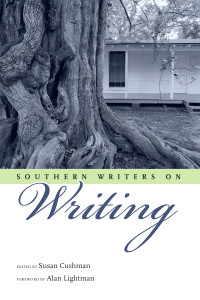 I hope you’ve been following my series of excerpts from SOUTHERN WRITERS ON WRITING (coming from University Press of Mississippi in May), but if you’ve missed them and would like to catch up, here they are:
I hope you’ve been following my series of excerpts from SOUTHERN WRITERS ON WRITING (coming from University Press of Mississippi in May), but if you’ve missed them and would like to catch up, here they are:
Sneak Previews 1 (featuring Neil White, Alan Lightman, Jim Dees, and Joe Formichella)
Sneak Previews 2 (featuring Harrison Scott Key, Cassandra King, Corey Mesler, and Patti Callahan Henry)
Sneak Previews 3 (featuring Sonja Livingston, Sally Palmer Thomason, Julie Cantrell, and Katherine Clark)
Sneak Previews 4 (featuring John Floyd, Jennifer Horne, Suzanne Hudson, River Jordan, Lee Smith, and M. O. Walsh)
The next three sneak previews are from the section “Writing About Race,” and they are from three of the four African American authors who contributed essays to the collection. Be sure and click on each author’s name to find out more about their writing.
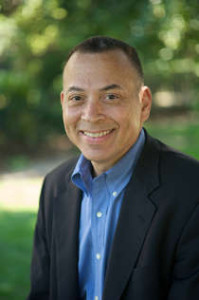 Over the years, I have come to realize that the past shapes who we are and what we become. My lived experience has taught me that turning away from one’s personal history is a way of denying yourself and your very existence…. The same can be said about delving into Mississippi’s history. One must be willing to travel into Mississippi’s cavernous psyche and its past, deeper than many are willing to travel, in order to find a connection. To some, ties to the past may seem tortuous, but for me this linkage with history is my calling. Rather than being caught in the moonlit glow of nostalgia, the past helps me engage with the present with clear eyes. That is why the past no longer scares me, since now I know that the past is just another name for today.—W. Ralph Eubanks, from “The Past Is Just Another Name for Today”
Over the years, I have come to realize that the past shapes who we are and what we become. My lived experience has taught me that turning away from one’s personal history is a way of denying yourself and your very existence…. The same can be said about delving into Mississippi’s history. One must be willing to travel into Mississippi’s cavernous psyche and its past, deeper than many are willing to travel, in order to find a connection. To some, ties to the past may seem tortuous, but for me this linkage with history is my calling. Rather than being caught in the moonlit glow of nostalgia, the past helps me engage with the present with clear eyes. That is why the past no longer scares me, since now I know that the past is just another name for today.—W. Ralph Eubanks, from “The Past Is Just Another Name for Today”
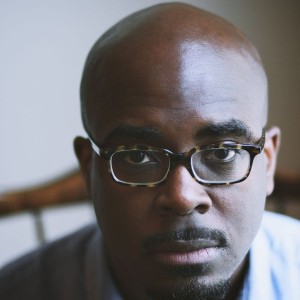 Too often, in the depiction of black characters working for white families, the first voice, the voice that navigates servitude, is all the reader gets. Yes, we hear a voice and see the quotations on the page, but what about the rest of the character? Who are the characters in their private spaces? What anchors them to family and community? Where do they live when they are off the page? The voices, governed by the long history of black service and concerned with the requirements of their employers’ endearment and comfort, cannot show the candor shared in the company of friends. The depth and the resonance of the countermelodies don’t always appear in dialogue, making an inner voice necessary.—Ravi Howard, from “Black Countermelodies”
Too often, in the depiction of black characters working for white families, the first voice, the voice that navigates servitude, is all the reader gets. Yes, we hear a voice and see the quotations on the page, but what about the rest of the character? Who are the characters in their private spaces? What anchors them to family and community? Where do they live when they are off the page? The voices, governed by the long history of black service and concerned with the requirements of their employers’ endearment and comfort, cannot show the candor shared in the company of friends. The depth and the resonance of the countermelodies don’t always appear in dialogue, making an inner voice necessary.—Ravi Howard, from “Black Countermelodies”
 Only after being asked a good many years later to guest-edit a literary journal’s special issue on southern poetry did I begin pondering whether such a subgenre existed. From early on I had read Knight and Robert Penn Warren faithfully, but I’d never really considered either’s poems in terms of their southerness…. But when I began to wonder what, if anything, would make a poem or poet, myself included, expressly southern, I found I needed to first consider what makes a place seem southern to me…. If there is a seal on southerners that identifies them as peculiar to all other people, it’s quite likely our spiritualness…. Whether a true southerner opposes, straddles, or embraces upbringing to do with religion, it’s always wrestled with. O’Connor’s characters never escape it and neither do we.—Claude Wilkinson, from “All That Southern Jazz”
Only after being asked a good many years later to guest-edit a literary journal’s special issue on southern poetry did I begin pondering whether such a subgenre existed. From early on I had read Knight and Robert Penn Warren faithfully, but I’d never really considered either’s poems in terms of their southerness…. But when I began to wonder what, if anything, would make a poem or poet, myself included, expressly southern, I found I needed to first consider what makes a place seem southern to me…. If there is a seal on southerners that identifies them as peculiar to all other people, it’s quite likely our spiritualness…. Whether a true southerner opposes, straddles, or embraces upbringing to do with religion, it’s always wrestled with. O’Connor’s characters never escape it and neither do we.—Claude Wilkinson, from “All That Southern Jazz”
And these three are in the section “On the Craft of Writing”:
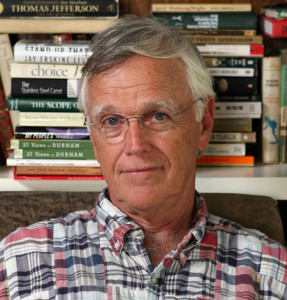 Do you write down a lot about what characters are thinking in your final draft? Get out of your characters’ heads; get out of analyzing what a character means, or means to mean, or hope, or wishes. Just let people say things to other people and write down what they say. Play with that, work on it, and if you get the dialogue right, then the reader can figure out much of what needs to be known. Then the reader is participating in the art of the story…. We all know that there are exceptions to any writing rules. Good art doesn’t follow a set of stiff mandates. But you can possibly simplify, focus, unify, and pack some new punch into your writing by thinking through a few one things.—Clyde Edgerton, from “Three ‘One Things”: An Essay on Writing Fiction”
Do you write down a lot about what characters are thinking in your final draft? Get out of your characters’ heads; get out of analyzing what a character means, or means to mean, or hope, or wishes. Just let people say things to other people and write down what they say. Play with that, work on it, and if you get the dialogue right, then the reader can figure out much of what needs to be known. Then the reader is participating in the art of the story…. We all know that there are exceptions to any writing rules. Good art doesn’t follow a set of stiff mandates. But you can possibly simplify, focus, unify, and pack some new punch into your writing by thinking through a few one things.—Clyde Edgerton, from “Three ‘One Things”: An Essay on Writing Fiction”
 I’ve often heard that in the South, we don’t hide crazy; we put it out on the front porch or sometimes even in the yard for everyone to see. While that is tongue and cheek, it does illustrate that to capture the essence of what is different and unique in the South is to offer a new canvas in our art, and that is exactly what I have done in my own writing and what I often encourage my students and audiences to do…. Illustrating difference in fiction functions in a perpendicular fashion from what we consider our reality—like a stop sign at a crossroads. As a result, we stop in our reading, our perception shifts and expands, and we learn and grow.—Niles Reddick, from “Capturing the Essence of Difference”
I’ve often heard that in the South, we don’t hide crazy; we put it out on the front porch or sometimes even in the yard for everyone to see. While that is tongue and cheek, it does illustrate that to capture the essence of what is different and unique in the South is to offer a new canvas in our art, and that is exactly what I have done in my own writing and what I often encourage my students and audiences to do…. Illustrating difference in fiction functions in a perpendicular fashion from what we consider our reality—like a stop sign at a crossroads. As a result, we stop in our reading, our perception shifts and expands, and we learn and grow.—Niles Reddick, from “Capturing the Essence of Difference”
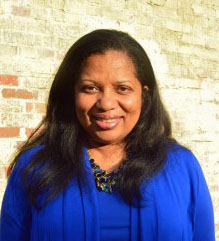 A professor once said to me, “Southerners don’t transplant well.” He was right. I lived outside the South for two years and hated every minute of it. I did not understand the people, the customs, the food, or the accents…. When I reentered Alabama after that long absence, I stopped my car, got out and kissed the ground. Even the kinship I feel to [Toni] Morrison’s work springs from my own sense of what it means to be black, a woman, and southern, complicated identities often at odds with each other, and sometimes at war…. My poetry comes out of my quarrel with myself as I grapple with the dualities of my feelings about the South, my home, my lovely, dysfunctional home—pride and shame; joy and sadness—the place from which comes both the love and rage that undergird my work.—Jacqueline Allen Trimble, from “A Woman Explains How Learning Poetry is Poetry Made Her a Poet”
A professor once said to me, “Southerners don’t transplant well.” He was right. I lived outside the South for two years and hated every minute of it. I did not understand the people, the customs, the food, or the accents…. When I reentered Alabama after that long absence, I stopped my car, got out and kissed the ground. Even the kinship I feel to [Toni] Morrison’s work springs from my own sense of what it means to be black, a woman, and southern, complicated identities often at odds with each other, and sometimes at war…. My poetry comes out of my quarrel with myself as I grapple with the dualities of my feelings about the South, my home, my lovely, dysfunctional home—pride and shame; joy and sadness—the place from which comes both the love and rage that undergird my work.—Jacqueline Allen Trimble, from “A Woman Explains How Learning Poetry is Poetry Made Her a Poet”
Stay tuned for the last group of previews next week!